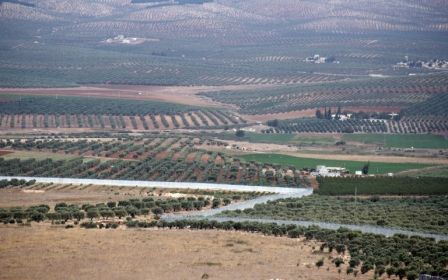McMaster says Syria using chemical weapons, warns of growing Iranian influence

US National Security Advisor H R McMaster said on Saturday that public reports showed Syria was using chemical weapons and added that it was time for the international community to hold the Syrian government to account.
"Public accounts and photos clearly show that Assad's chemical weapons use is continuing," McMaster said at the annual Munich Security Conference.
"It is time for all nations to hold the Syrian regime and its sponsors accountable for their actions and support the efforts of the Organization for the Prohibition of Chemical Weapons," he said, without specifying which public accounts or pictures he was referring to.
The US has repeatedly accused the Syrian regime of Bashar al-Assad of using chemical weapons in its long-running civil war. Earlier this month, US Defense Secretary Jim Mattis said the Syrian government had repeatedly used chlorine gas, but stressed that the US did not have evidence of sarin gas use.
Iranian 'network of proxies'
McMaster also warned that Iran, a close ally of the Syrian regime was building and arming an increasingly powerful network of proxies across the Middle East, including in Syria.
"What’s particularly concerning is that this network of proxies is becoming more and more capable, as Iran seeds more and more ... destructive weapons into these networks," McMaster told the annual Munich Security Conference.
Both Iran and Russia have provided military support to the Assad government in its eight-year conflict with Sunni rebel groups. Diplomatic efforts have made little progress towards ending the war, which has killed hundreds of thousands of people and forced half the pre-war Syrian population of 23 million from their homes.
In recent weeks rescue workers and aid groups echoed US claims that Syria was using chlorine gas as a weapon against civilians in Ghouta and Idlib. The two regions are the last major rebel-held areas in Syria and were bombarded earlier this month by Syrian and Russian forces.
The Syrian government has denied the accusations and said it targets only armed rebels and militants.
McMaster also identified Yemen and Iraq as states where Iran was building proxy forces. In Yemen, Tehran has been accused of violating a UN arms embargo by channeling weapons to Houthis militias. The Houthis are fighting the Saudi-backed and internationally recognised Yemeni government. Iran denies the accusation.
Iran has also offered support to various Iraqi Shia militias known as the Hashd al-Shaabi, or Popular Mobilisation Forces.
Stay informed with MEE's newsletters
Sign up to get the latest alerts, insights and analysis, starting with Turkey Unpacked
Middle East Eye delivers independent and unrivalled coverage and analysis of the Middle East, North Africa and beyond. To learn more about republishing this content and the associated fees, please fill out this form. More about MEE can be found here.




